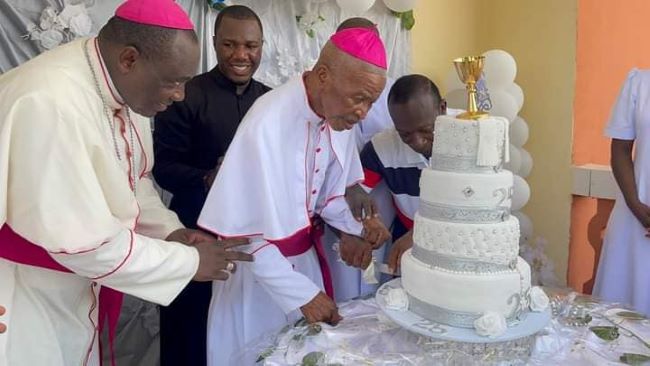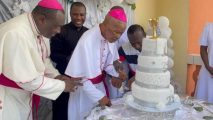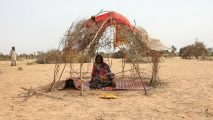Categories
Archives
- April 2024
- March 2024
- February 2024
- January 2024
- December 2023
- November 2023
- October 2023
- September 2023
- August 2023
- July 2023
- June 2023
- May 2023
- April 2023
- March 2023
- February 2023
- January 2023
- December 2022
- November 2022
- October 2022
- September 2022
- August 2022
- July 2022
- June 2022
- May 2022
- April 2022
- March 2022
- February 2022
- January 2022
- December 2021
- November 2021
- October 2021
- September 2021
- August 2021
- July 2021
- June 2021
- May 2021
- April 2021
- March 2021
- February 2021
- January 2021
- December 2020
- November 2020
- October 2020
- September 2020
- August 2020
- July 2020
- June 2020
- May 2020
- April 2020
- March 2020
- February 2020
- January 2020
- December 2019
- November 2019
- October 2019
- September 2019
- August 2019
- July 2019
- June 2019
- May 2019
- April 2019
- March 2019
- February 2019
- January 2019
- December 2018
- November 2018
- October 2018
- September 2018
- August 2018
- July 2018
- June 2018
- May 2018
- April 2018
- March 2018
- February 2018
- January 2018
- December 2017
- November 2017
- October 2017
- September 2017
- August 2017
- July 2017
- June 2017
- May 2017
- April 2017
- March 2017
- February 2017
- January 2017
- December 2016
- November 2016
- October 2016
- September 2016
- August 2016
- July 2016
- June 2016
Featured
 Bishop Francis T. Lysinge @ 25!
Bishop Francis T. Lysinge @ 25!  Understanding the Biya Francophone regime’s support for the Israeli genocide in Gaza
Understanding the Biya Francophone regime’s support for the Israeli genocide in Gaza  Poverty under Biya: Cameroonians embrace Chinese language for brighter futures
Poverty under Biya: Cameroonians embrace Chinese language for brighter futures  Cameroon is broken: Who can fix it?
Cameroon is broken: Who can fix it?  Ethiopia: U.S Senator Cardin Statement on the Killing of Bate Urgessa
Ethiopia: U.S Senator Cardin Statement on the Killing of Bate Urgessa
Most Commented Posts
 4 Anglophone detainees killed in Yaounde
4 Anglophone detainees killed in Yaounde
19 comments Chantal Biya says she will return to Cameroon if General Ivo Yenwo, Martin Belinga Eboutou and Ferdinand Ngoh Ngoh are sacked
Chantal Biya says she will return to Cameroon if General Ivo Yenwo, Martin Belinga Eboutou and Ferdinand Ngoh Ngoh are sacked
13 comments Anglophone Nationalism: Barrister Eyambe says “hidden plans are at work”
Anglophone Nationalism: Barrister Eyambe says “hidden plans are at work”
12 comments The Anglophone Problem – When Facts don’t Lie
The Anglophone Problem – When Facts don’t Lie
12 comments Largest wave of arrest by BIR in Bamenda
Largest wave of arrest by BIR in Bamenda
10 comments
Latest Tweets
Featured
-

Bishop Francis T. Lysinge @ 25!
-

10 Million Cameroonians lived on less than $1.80 per day
-

Football: Xavi to remain as Barcelona coach
-

Biya regime delays bond sale amid regional market strain
-

Historic agreement between Nigeria and Cameroon to tackle wildlife crime
-

Southern Cameroons refugees in Nigeria receive farm seedlings
-

Douala: Investment Forum wraps up with honors for investment champions
© Cameroon Concord News 2024
9, December 2016
Anglophone Problem: Violence begets violence 0
The violence that was served to residents of Bamenda on Thursday, December 9, 2016, following demonstrations in the North West regional capital should not be part of the country’s history if the culture of dialogue and tolerance had been sown in the collective psyche. The negotiating table was also designed for Cameroonians and the country’s government should be promoting this culture that has served other people and stood the test of time. The demonstrations that were started by lawyers were designed to be peaceful until the forces of law and order came to sow disorder. Many lawyers were brutalized and this has drawn the ire and flak of many Anglophones who now hold that the government is not interested in addressing their issues in a peaceful manner. Yesterday’s killings in Bamenda constitute irrefutable proof of the government’s arrogance and determination to push the country into the abyss of violent conflict.
While ordinary, armless and peaceful Anglophones are simply calling for their leaders to listen to them, the government which is supposed to be leading from the front seems to be looking for an excuse to mow down its own citizens and Bamenda did serve yesterday as a training ground for the military to put into practice its own killing skills. Such violence does not create proper room for meaningful dialogue. Taking down your own citizens only makes matters worse. Violence, regardless of the form, only begets violence. If demonstrations by Anglophones are not considered legal, what could have justified the CPDM march that was supposed to take place in Bamenda? Just a few days ago, SDF parliamentarians were blocked in a hotel in Buea just because they wanted to demonstrate their support for the striking Anglophone Cameroonians. If the SDF march in support of angry Anglophone teachers and lawyers was not right, why did CPDM stalwarts think their own march in Bamenda would be considered right and appropriate by a people who feel frustrated and marginalized? Does this not look like a double standard? Why should there be different strokes for different folks? When will the government and ruling party understand that tricks of the past cannot really produce the same results in a new era?
In a genuine democracy, it is normal for frustrated citizens to make their angst known to their leaders without resorting to violence. But when government officials seem to live in an Ivory tower, it becomes challenging for dialogue to actually take place. When will Cameroon government officials come down from their pseudo pedestal of superiority to have frank and meaningful discussions with the people they government? This is not the attitude to develop when running a country with different linguistic blocs and multiple tribes. It is preposterous to hold that unity and peace will always prevail and that weapons will always intimidate the people. Differences of opinion will always exist in such societies, but it is incumbent upon the government to play its role as a stabilizing force. Cameroonians, especially those of Anglophone extraction, sincerely think that there is no true and reliable partner on the other side for them to have real discussions on those issues that have made the union feel and smell like a very bad marriage. In their view, it is hard to achieve anything in their country without taking to the streets. They point to the creation of more universities in 1993 in the country and this only happened after long and painful demonstrations wherein some of their compatriots were killed by the people who weresupposed to protect. Multiparty politics was birthed in bloodshed in Cameroon and the memories of the past are still very fresh. The country is still littered with victims of this period. The psychological and physical scars are still there and the people, especially North-westerners, will surely not forget those bad and ugly days. Such examples only come to strengthen the argument that citizens of this country cannot achieve anything without bloodshed. Some even assert that even the government comes to the negotiating table, it ends up speaking from both sides of its mouth. Isn’t it time for the government to clean up its own act?
Like their Francophone counterparts, Anglophones simply want the government to lend an ear to their cry. They are slowly running out of tears and blood seems to be replacing tears. The need for dialogue is not new in Cameroon. Even in the days of the country’s first president, Anglophones always called for dialogue, although the cries fell on deaf ears and their marginalization and assimilation gathered full momentum when the country’s first president yielded power to the current president.
In a letter to President Ahmadou Ahidjo in 1964, Prof. Bernard Fonlon said that “A traveler on the road stops from time to time to look back and see the ground he has covered; merchants close shops at intervals to take stock; users of machines are bound to service and overhaul them now and again. Thus it is the most natural of things for the people engaged in an enterprise such as this to halt, once in a while, to see how much ground has been covered, to draw up their balance sheet, to service or overhaul, if need be, the machinery of the State.” This implies that both Anglophones and Francophones should come to the table to assess the state of their union. It also implies that Anglophones have been crying for a very long time and the government be it the current or the past one has been totally indifferent to their sorry plight.
Prof. Fonlon like current Anglophones had called for genuine dialogue. He summed up the Anglophone spirit of dialogue in the following words, calling on the government not to view an assessment of the union as a challenge. “We shall call upon you, therefore, brothers and co-builders, to hear us with sympathetic understanding. As I have said, again and again, we are not making this appeal in a fault finding spirit. We are making it because of our love for this country, because of our faith in its destiny, because of our concern for this welfare and prestige. We make it because we are mindful of the solemn words of practical wisdom addressed to all builders in the Sermon on the Mount.”
Cameroon political authorities should lend an ear to their people. Dialogue is the answer. Violence has never addressed any issues. Violence only begets violence. Government authorities can spare this beautiful nation the scourge of war if they embrace dialogue and peaceful resolution of conflicts. Provocations, regardless of the form, only cause problems to escalate.
Dr Joachim Arrey
Cameroon Concord News Group